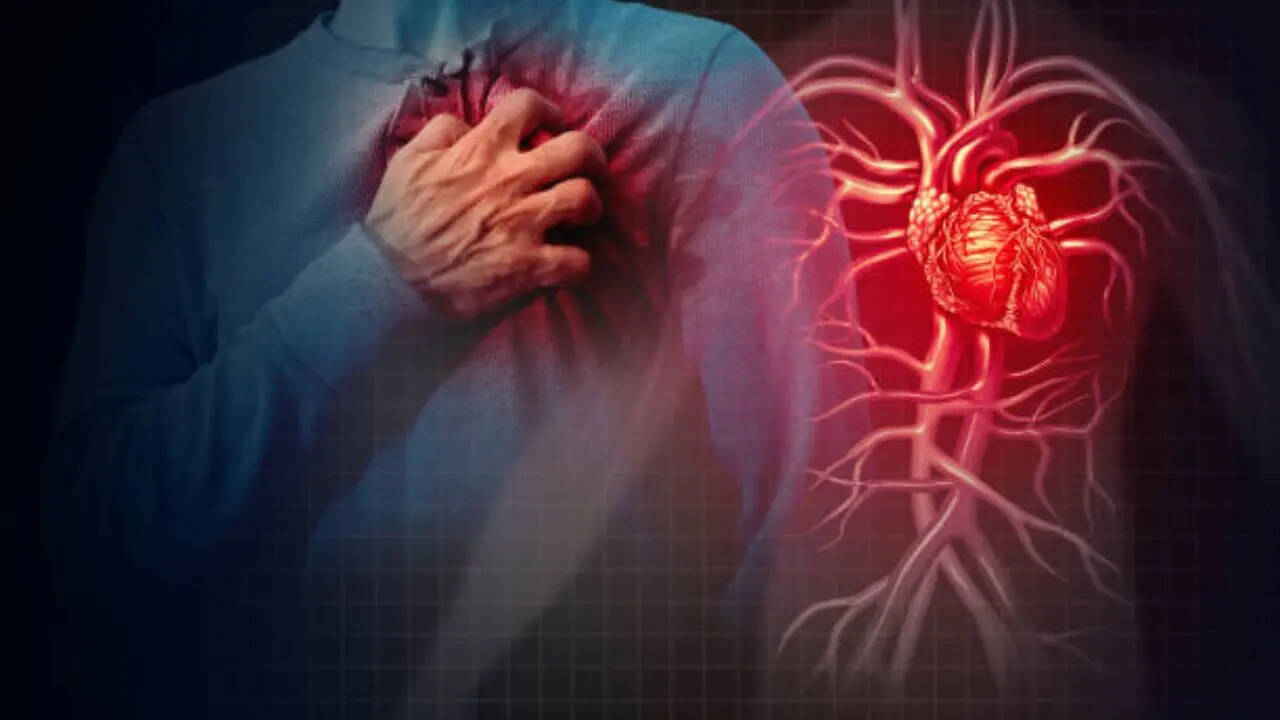Health
Delhi Doctor Warns of Hidden Heart Attack Symptom: Orthopnea

A significant warning sign of an impending heart attack may go unnoticed by many. Dr. Obaidur Rahman, a physician at Ram Manohar Lohia Hospital in Delhi, has highlighted the subtle yet critical symptom known as orthopnea. This condition can manifest days before a heart attack occurs and may be an essential indicator of cardiovascular distress.
Orthopnea refers to the difficulty in breathing while lying flat, a condition that can prompt many individuals to adopt elevated positions while sleeping. In a recent post on Instagram, Dr. Rahman emphasized that approximately 92 percent of people overlook orthopnea as a serious warning signal. He stated, “When the heart weakens, blood backs up into the lungs. The moment you lie flat, gravity stops helping you breathe and you wake up suffocating, restless, drenched in sweat.”
Understanding Orthopnea
Orthopnea can occur randomly or may worsen over time, making it a sign of more serious underlying health issues. Individuals experiencing this symptom often require multiple pillows or may even sleep sitting up to alleviate discomfort. Dr. Rahman stresses that anyone facing breathing difficulties should consult a healthcare provider for proper evaluation.
The condition typically arises due to various medical issues that lead to fluid accumulation around the lungs or hinder their expansion. When a person lies flat, blood can redistribute from the legs to the lungs, increasing pressure and making breathing more challenging. A healthy heart effectively pumps this excess blood; however, a weakened heart struggles to manage the load, which is why sitting up can make breathing easier.
Common Causes of Orthopnea
Several medical conditions can lead to or increase the risk of developing orthopnea. These include:
– Congestive heart failure
– Pulmonary hypertension
– Chronic obstructive pulmonary disease (COPD)
– Obesity
– Pulmonary edema
– Severe pneumonia
– Diaphragm paralysis
By being aware of orthopnea and its implications, individuals can better recognize potential heart issues early. Dr. Rahman’s insights serve as a reminder of the importance of monitoring one’s health and seeking medical attention when unusual symptoms arise.
In conclusion, awareness of subtle symptoms like orthopnea can play a crucial role in preventing serious cardiovascular events. As Dr. Rahman aptly points out, recognizing these signals may ultimately save lives.
-

 World5 months ago
World5 months agoSBI Announces QIP Floor Price at ₹811.05 Per Share
-

 Lifestyle5 months ago
Lifestyle5 months agoCept Unveils ₹3.1 Crore Urban Mobility Plan for Sustainable Growth
-

 Science4 months ago
Science4 months agoNew Blood Group Discovered in South Indian Woman at Rotary Centre
-

 World5 months ago
World5 months agoTorrential Rains Cause Flash Flooding in New York and New Jersey
-

 Top Stories5 months ago
Top Stories5 months agoKonkani Cultural Organisation to Host Pearl Jubilee in Abu Dhabi
-

 Sports4 months ago
Sports4 months agoBroad Advocates for Bowling Change Ahead of Final Test Against India
-

 Science5 months ago
Science5 months agoNothing Headphone 1 Review: A Bold Contender in Audio Design
-

 Top Stories5 months ago
Top Stories5 months agoAir India Crash Investigation Highlights Boeing Fuel Switch Concerns
-

 Business5 months ago
Business5 months agoIndian Stock Market Rebounds: Sensex and Nifty Rise After Four-Day Decline
-

 Sports4 months ago
Sports4 months agoCristian Totti Retires at 19: Pressure of Fame Takes Toll
-

 Politics5 months ago
Politics5 months agoAbandoned Doberman Finds New Home After Journey to Prague
-

 Top Stories5 months ago
Top Stories5 months agoPatna Bank Manager Abhishek Varun Found Dead in Well









